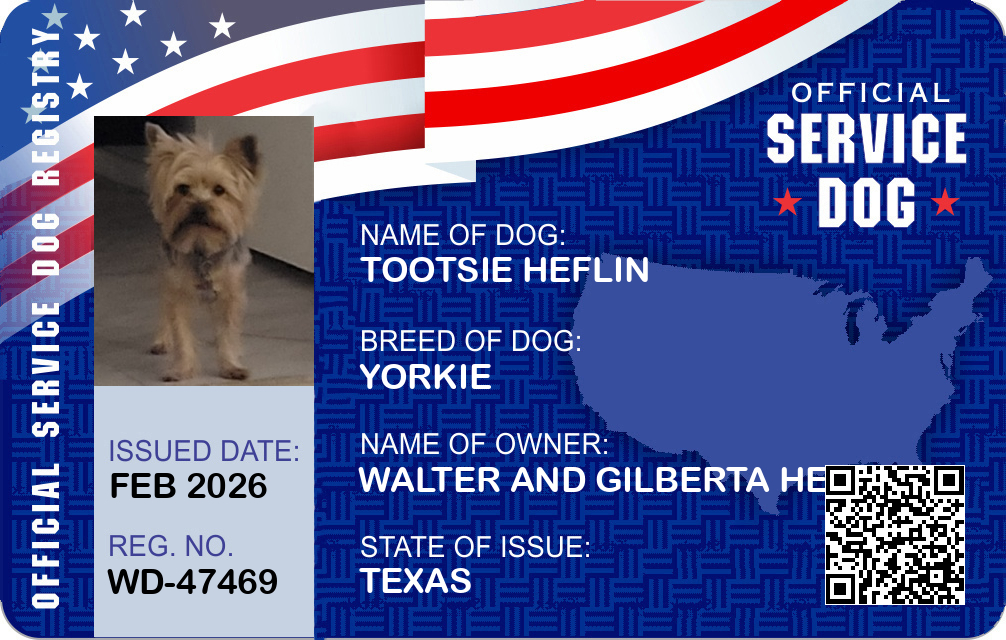Portuguese Podengo Pequeno as a Service Dog
Get Your Documents

The Portuguese Podengo Pequeno, often known for its hunting prowess, is an intriguing option when considering breeds for service dog work. This small yet agile breed offers unique attributes, from its physical characteristics to its temperament, that may make it suitable for certain types of service work. In this article, we will explore in detail the Portuguese Podengo Pequeno’s potential as a service dog, examining various aspects such as its traits, health considerations, and trainability.
Portuguese Podengo Pequeno Overview
The Portuguese Podengo Pequeno is a member of the ancient Podengo family of dogs, native to Portugal and known for hunting small game. The “Pequeno” is the smallest of the three Podengo sizes, celebrated for its quick agility and sharp senses. Its small size doesn’t impede its abilities, but rather enhances its standout qualities. As we delve into the particulars of this breed, we will consider both its advantages and limitations in the context of service dog work.
Physical Characteristics
The Portuguese Podengo Pequeno is a small, agile dog that typically stands between 8 to 12 inches tall at the shoulder and weighs approximately 9 to 13 pounds. It possesses a lean, athletic frame built for speed and endurance, with a wedge-shaped head, keen eyes, and pointed ears that enhance its acute sense of hearing.
- Size and Weight: Its compact size makes it ideal for individuals who require a service dog that can accompany them in environments where space is limited, such as public transportation or small living quarters. However, its smaller stature limits its ability to perform tasks requiring significant strength or weight-bearing.
- Coat Type and Care: The breed’s coat can be either smooth or wire-haired, both of which are relatively low-maintenance but require regular grooming to prevent matting and maintain cleanliness. This highlights ease of care, which can be a crucial factor for handlers with physical limitations.
- Energy Level and Stamina: Despite its size, the Podengo Pequeno is highly energetic and requires substantial daily exercise. This makes it well-suited for active individuals or those in need of a service dog capable of maintaining stamina across various tasks.
Temperament and Attitude
The Portuguese Podengo Pequeno is known for its lively and intelligent disposition. These dogs are often described as independent thinkers, curious, and alert, traits that can both aid and challenge the service dog training process.
- Affectionate and Loyal: They form strong bonds with their handlers, which is essential for effective service work. Their loyal nature ensures they remain attentive and responsive to their handler’s needs.
- Independent Yet Trainable: While they can display a strong-willed personality, their intelligence facilitates learning and adaptation to training routines. Positive reinforcement techniques are particularly effective, allowing these dogs to thrive with encouragement and consistency.
- Public Behavior: In public, the breed’s innate alertness can be advantageous for certain types of service work, such as hearing alert tasks, although their propensity to bark might require additional training to manage appropriately in public spaces.
Types of Service Work
While the Portuguese Podengo Pequeno may not be suited for all types of service work due to its size, it excels in specific roles that leverage its agility, intelligence, and sensory capabilities.
- Hearing Dogs: Their acute hearing and alert nature make them excellent candidates for hearing alert roles, where they can notify handlers of important sounds like doorbells, alarms, or even approaching footsteps.
- Companion and Emotional Support: The breed’s affectionate nature and small size make it a comforting presence for individuals in need of companionship and emotional support, particularly those with anxiety or depression.
- Scent Detection: Podengos have a keen sense of smell, thus they can be trained for specific scent detection tasks, which can include alerting to allergens or changes in blood sugar levels, though this role is more challenging due to their smaller capacity for intricate scent differentiation.
Despite these capabilities, they are less suited to roles that require physical strength or endurance in cold weather conditions, such as guide work for the visually impaired or mobility assistance.
Health Considerations
Health plays a critical role in determining a breed’s viability for service work. The Portuguese Podengo Pequeno is generally healthy, but there are certain considerations to keep in mind.
- Lifespan and Longevity: They typically enjoy a lifespan of 12 to 14 years, which allows for a longer period of service compared to breeds with shorter lifespans.
- Common Health Issues: While the breed is largely robust, potential health issues include patellar luxation and hip dysplasia, particularly if overweight. Regular veterinary checks and maintaining a healthy diet and weight are essential.
- Grooming and Allergies: Their coat requires modest grooming, and regular care can help reduce allergen levels, beneficial for handlers sensitive to pet dander.
Training and Suitability
Training a Portuguese Podengo Pequeno for service work requires patience and a strategic approach. Their independent nature means that trainers must employ consistent, positive reinforcement techniques to gain the breed’s cooperation.
- Intelligence and Problem Solving: They exhibit strong problem-solving skills, which enhance their ability to learn complex tasks.
- Socialization Needs: Proper socialization from an early age is necessary to prevent shyness or anxiety in unfamiliar situations, ensuring they remain calm and focused in public environments.
- Consistency and Reinforcement: Due to their independent streak, consistent training methods and clear boundaries are crucial. This ensures they understand and consistently perform the tasks needed in service work.
Summary of Portuguese Podengo Pequeno
In conclusion, the Portuguese Podengo Pequeno possesses a blend of traits that can make it an effective service dog in specific contexts. Its small size, intelligence, and energetic disposition suit it well for tasks that require alertness and agility. However, limitations in physical strength and the need for proper socialization and training must be considered. The following summarizes their key attributes and ideal service roles:
– Strengths:
- Agile and energetic, ideal for active service roles
- Excellent hearing capabilities, suitable for hearing alert tasks
- Affectionate and loyal, providing strong emotional support
– Weaknesses:
- Small size limits ability for strength-dependent tasks
- Independent nature requires patient, consistent training
– Ideal Service Roles:
- Hearing alert services
- Emotional support dog
- Scent detection tasks (in specific contexts)
Overall, while not traditionally seen in service roles, the Portuguese Podengo Pequeno offers potential that, when harnessed correctly, can provide invaluable assistance to individuals in need.
Get Your Documents
Example State Cards













